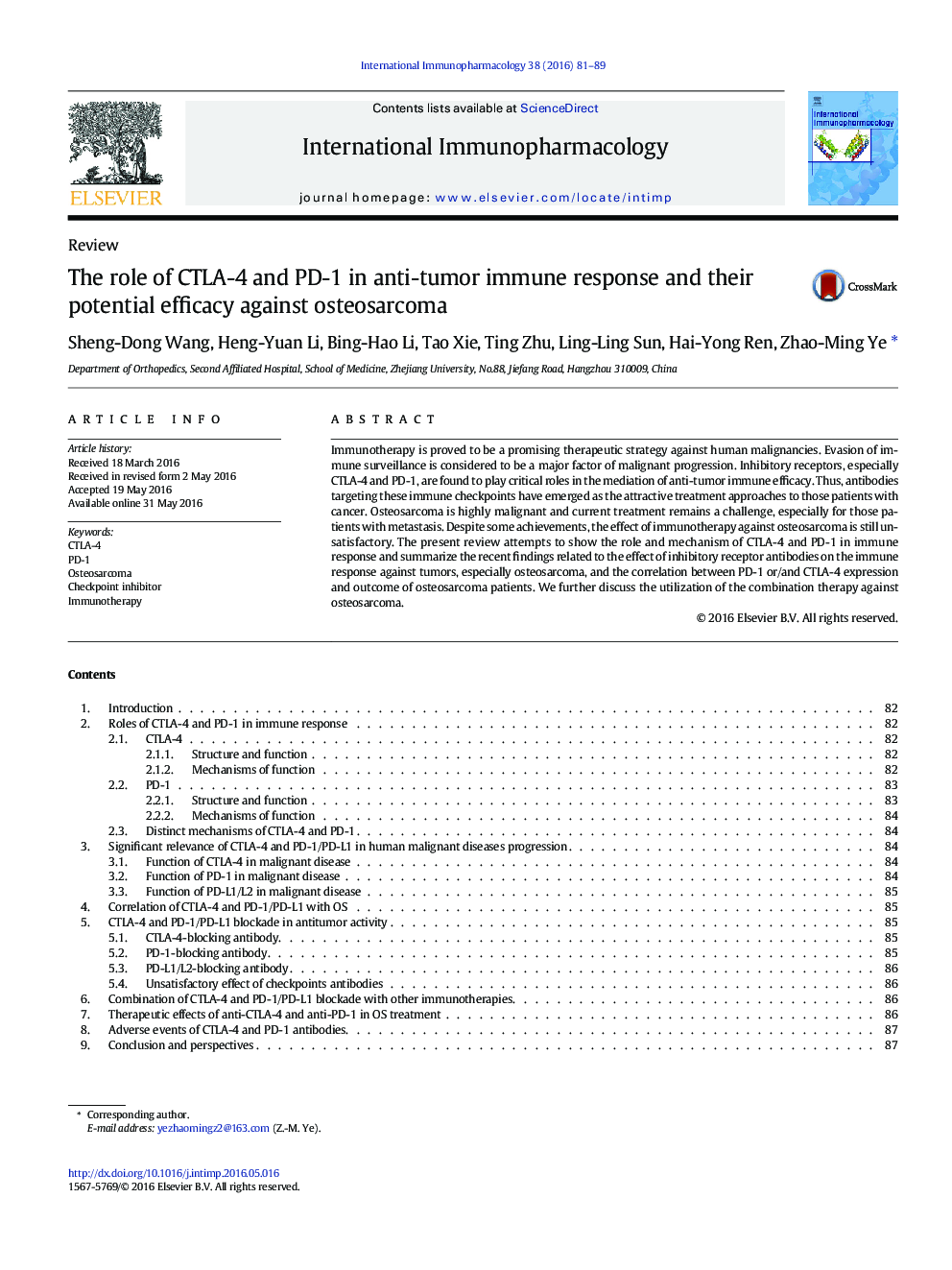| Article ID | Journal | Published Year | Pages | File Type |
|---|---|---|---|---|
| 5831734 | International Immunopharmacology | 2016 | 9 Pages |
â¢Immunotherapy is becoming a promising therapeutic strategy against human malignanciesâ¢CTLA-4 and PD-1, the immune checkpoints, play critical roles in immune response but not in the same mechanism.â¢Researches have shown significant relevance of CTLA-4 and PD-1/PD-L in malignancies progression, including osteosarcoma.â¢Antibodies against immune checkpoints reveal significant effects to human malignancies, including osteosarcoma.â¢Immune checkpoints are hot research areas at present and this therapeutic strategy seems to have a promising perspective.
Immunotherapy is proved to be a promising therapeutic strategy against human malignancies. Evasion of immune surveillance is considered to be a major factor of malignant progression. Inhibitory receptors, especially CTLA-4 and PD-1, are found to play critical roles in the mediation of anti-tumor immune efficacy. Thus, antibodies targeting these immune checkpoints have emerged as the attractive treatment approaches to those patients with cancer. Osteosarcoma is highly malignant and current treatment remains a challenge, especially for those patients with metastasis. Despite some achievements, the effect of immunotherapy against osteosarcoma is still unsatisfactory. The present review attempts to show the role and mechanism of CTLA-4 and PD-1 in immune response and summarize the recent findings related to the effect of inhibitory receptor antibodies on the immune response against tumors, especially osteosarcoma, and the correlation between PD-1 or/and CTLA-4 expression and outcome of osteosarcoma patients. We further discuss the utilization of the combination therapy against osteosarcoma.
